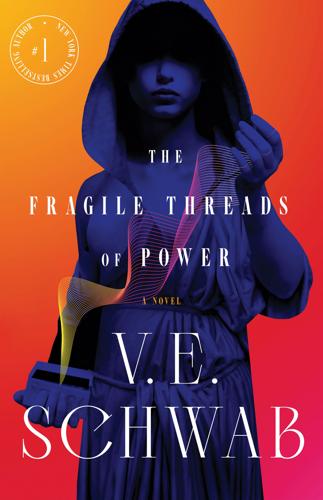
V.E. Schwab
Nashville native V.E. Schwab continues the story begun in her Shades of Magic series with The Fragile Threads of Power, the first in a new trilogy that returns readers to the Four Londons seven years after the events of the first series. Fans will be thrilled to learn what happened to Kell and Lila and all the other fascinating characters, but this book introduces new characters and complications.
The Four Londons (Red, White, Black and Grey) still operate distinctly from one another, with only a few powerful magicians (Antari) able to move between them. The new Antari queen in White London will do anything to preserve the safety and well-being of her people, and the king of Red London is facing an uprising that threatens to destroy his people’s peace and prosperity. The Fragile Threads of Power is a compelling, fast-paced and sturdily built fantasy, and whether they’re returning fans or first-time discoverers of the brilliantly designed Four Londons, readers will enjoy every twist of this sharp novel.
Schwab answered questions by phone. The conversation has been edited for length and clarity.
I had not read the Shades of Magic series before diving into The Fragile Threads of Power, so I know you can read this one as a stand-alone. What do you think would be added to the experience for those readers who have already been in this world and fallen in love with these characters?
My goal is that one day, when both trilogies are on the shelves, you’ll genuinely be able to choose which one you want to start with. Either Shades of Magic will feel like a prequel series or Fragile Threads will feel like a sequel series. Currently the only people who are absolutely adamant that you need to read Shades of Magic first are, of course, those who have read Shades of Magic first.
There are lots of authors who put a book to bed and find that the characters keep knocking at the door and saying, “Nope, we’ve got more to do.” Is that what happened here?
I was about halfway through writing book three of Shades of Magic, and I realized I had a small plot thread I could either rapidly resolve, which felt like a disservice to the plot thread, or I could use it as a little doorstop — to prop the door to the world open just in case I ever wanted to return to it. By the end of that series, I knew I wanted to return. I spent the next three years analyzing that desire and beginning to build the foundation of the new trilogy and stress-testing it every which way to make sure it was necessary. To make sure this was something that had actual meat on its bones.
Deception is a common thread in this novel. Do you think deception is at the heart of every power struggle?
That’s one of the great questions of the book. It’s something that everyone is struggling with: from the king of Red London, Rhy; to the young queen of White London; to a 15-year-old runaway, to Kell, who has had a vast amount of power his entire life and suddenly doesn’t. It’s less about whether there’s something like honest power, and more about how people with power use it.

Why do you think names are so important in the world of this novel, and would you say they are equally important to you as an author?
Names have power, and the giving of names also has a huge amount of power, just as it does in our world. I think it was Holly Black who said, “If you want to write fantasy, what you actually have to nail is reality.” Fantasy is built on realism, so I try to make sure that when I’m asking questions about this magical world, I’m applying the same logic I would use in my real world. And I think our relationship to names is one of those things where I hug very close to how they operate in reality.
Because you write primarily fantasy, your work is not usually considered Southern literature. What parts of your work can you point to as having roots in this part of the world?
My first novel was called The Near Witch, and it was about a tiny village and their relationship with strangers. Growing up in the South, there is that sense of the small town where, when something goes wrong, you don’t look to the people within your community for blame. You look for whoever doesn’t belong. Whether I’m writing about a small town in England or writing four interconnected worlds, I think about insider and outsider culture, and it all comes down to small-town mentalities.
To read an uncut version of this interview — and for more local book coverage — please visit Chapter16.org, an online publication of Humanities Tennessee.



